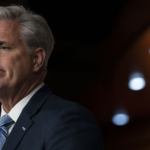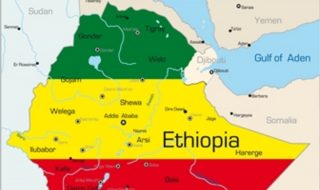
WHY AFRICA IS THE NEW AGE CONTINENT FOR INVESTMENT
Introduction: Africa undoughtedly is the wealthiest, well-resourced both in human and natural resources in the world. A continent of hope, love and positive thinking towards what is possible and realistic. The African continent is full of potentials that can change and revolutionalize the global economy. The rest of the world cannot afford to ignore the potentials and ability of the African continent as it is the hope for the world going forward. This is a fundamental reason why the African continent has become the new age for investment and the rest of the world directing all investment into the continent so they can benefit from the dividend Africa has to offer.
The opportunities in Africa are unlimited because it is a green continent, unprocessed and full of resources that when processed can create millions of jobs for the enthusiastic youth.
However, the continent is on pace to become the new hub for investment destination behind North America. As an emerging continent with a population of over one billion which about 60% of them are said to be within the youthful age, it is only increased investment and industrialization that can unlock the potential for job creation, poverty reduction and the growing of the middle class. Investors are also seeing significant opportunities to invest in Africa’s non-commodities sectors, financial services, construction and manufacturing which now account for 50 percent of China’s FDI in Africa. And while to date relocation of manufacturing and processing appears relatively limited, the potential of Africa is significant.
Africa Needs Education and skilled labor force

Guaranteeing the need for quality but affordable education up to the university level for every child is critical to the development and growth that the African continent requires. This is a catalyst to creating more employment opportunities for job seekers and several more conditions for steady prosperity for the people. The burgeoning working-age population will need to be gainfully employed, and significant investments must be made to support education and job creation. African countries and institutions are now stepping up efforts to close the skills gap and capitalize on growing FDI flows to build greater technological capabilities, enroll more students in science and technology disciplines, and strengthen science and mathematics education at all levels. African governments and policy makers must begin to establishing “school-based factories” and “factory-based schools” to address the vocational and technical needs of the continent to meet the demands of the growing private sector.
Africa Needs Infrastructure

With the growing human capital due to the growth in population, the continent is poised to be the next frontier for investors, its future growth will depend on productivity increases and higher private investment to bridge the infrastructure gap. Africa’s infrastructure financing need is estimated at $115 billion a year for the next decade. Africa without quality access to motorable roads, electricity, health, water and factories as well as enhanced ICT will be impeded to compete in the global arena. One of the daunting challenges of Africa is inadequate power supply, the most serious infrastructure challenge for the continent. Regular power outages cost the African economy as a whole between 1 and 4 percentage points of GDP. Moreover, only one in five Africans has access to electricity, and those with power access typically pay up to ten times more than consumers in developed countries.
Africa Needs Agribusiness and Friendly Investment Climate

WHY AFRICA IS THE NEW AGE CONTINENT FOR INVESTMENT
Agriculture still employs 60 to 70 percent of the total workforce on the continent but unfortunately its accounts for less than 20 percent of total value-added. This is the case because, although the continent is blessed with unlimited natural resources, they are sold in the raw state. Again, despite substantial policy commitments, innovation and productivity in the agriculture sector remains disappointing due to lack of technology and enhanced mechanization innovation in the sector. Agriculture and agribusiness are expected to become $1trillion industry by 2030. Kenya is now the third-largest exporter of cut flowers in the world, with the industry employing more than 500,000 people. According to the Kenya National Bureau of Statistics, the floriculture industry exported 278,601 tons of product in 2017 and now accounts for 1.3 percent of the country’s GDP. But Kenya is adding more than half a million people to the labor force every year, so massive job creation is required.
Ivory Coast and Ghana currently are the leading producers of cocoa beans in the world but the farmers are still not self-dependent due to lack of mechanization and education.
The bottom line? It will take partnerships between governments and the private sector, to drive this agenda and add value to its raw materials.
When it comes to the friendly climate for business, the continent requires not only lowering transport and energy costs, but also eliminating formal and informal barriers to trade; increasing the flexibility of labor markets; and ensuring effective competition in its policies, by improving its regulatory structure and institutions.
Conclusion
African is the new sources of hope for the world and that cannot be underestimated. The good news is that, Africa is one of the most integrated regions in the world, ranking behind only Europe and Southeast Asia for economic integration.
We can’t afford to ignore Africa, we must support the continent to sustain the world.
Contributor:

Jerry.J.AFOLABI
Financial & Economic Expert
Email:jelilius@gmail.com
















